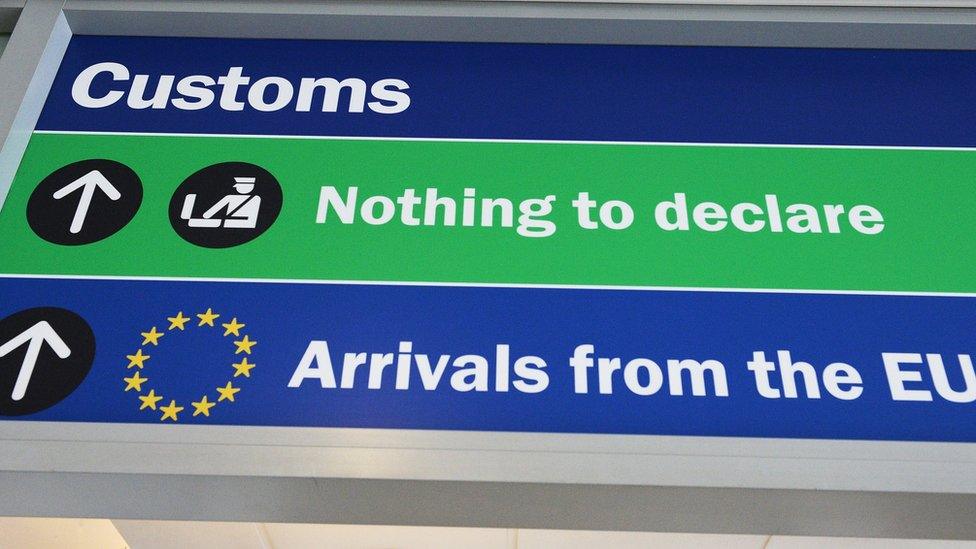Reality Check: What is a customs union?
- Published

The customs union has become a key part of the Brexit negotiations - so what is it and why does it matter?
A is a form of trade agreement between two or more countries.
It means they decide not to impose tariffs (taxes on imports) on each other's goods and agree to impose common external tariffs on goods from countries outside their customs union.
Setting common external tariffs is what distinguishes a .
A free trade area allows member states to trade feely with each other while still being able to set their own tariffs on goods from the rest of the world.
The purpose of a customs union, like that of other trade agreements, is to make it easier for member states to trade.
Customs unions reduce administrative and financial trade barriers (such as customs checks and charges) and enhance economic cooperation.
However, they also limit the freedom of their individual members to strike their own trade deals.
The European Union is the biggest customs union in the world if you work it out by adding up the economic output of all its members.
Article 28 of the Treaty on the Functioning of the European Union states that all trade in goods between EU countries must be free of customs duties and that member states must apply a common customs tariff for goods imported from outside the EU.
That means that all goods that have been imported into an EU country can then be moved freely within the EU .
includes the 28 EU member states as well as Monaco.
The EU also has customs union agreements - which vary in scope, such as type of goods covered - with .
So, you do not have to be a member of the EU's single market to be in a customs union with the EU.
Norway, on the other hand, is part of the European Economic Area (EEA), which gives it access to the single market, .
In practice, this means that while most goods that originate in Norway can still be traded tariff-free to the rest of the European single market, products coming through Norway into the single market are subject to further checks.
There are some customs checks on the border between Norway and Sweden even though they are both part of the single market, to check for products originating outside Norway.
A good example of this was the attempts to smuggle garlic into Sweden.
The customs union can be seen as one tool to help achieve one of the four freedoms of the EU, namely free trade in goods between member states.
The remaining three freedoms - free movement of services, capital and people - help tackle non-tariff barriers, which is vital in boosting trade, particularly in services.
Trade in services is arguably more important to the UK than trade in goods, as services make up almost 80% of the UK economy.
A customs union would have limited impact on trade in services.
The government has said it will take the UK out of the European Union.
However, exactly what this will mean is still not clear.
Whether to remove itself from the EU's customs union will not be the only question to decide on in order to shape the UK's trade relationships outside the EU.
Supporters of the customs union point out that if the UK were to leave it, there would be much more paperwork for UK businesses to fill out, and it could make the border issues involving Northern Ireland and the Irish Republic more complicated.
On the other hand, those wanting to leave the customs union say it would make it easier to negotiate trade deals with countries outside the union.
- Published22 February 2016